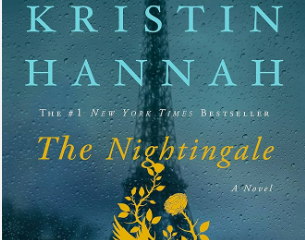The Bookbinder by Pip Williams – a review
Pip Williams is a new author for me this summer, and I’ve really enjoyed her unique take on historical fiction! Both her debut novel, The Dictionary of Lost Words, and her newest book, The Bookbinder, center on the experience of women at the Oxford University Press during WWI. The Bookbinder gives an inside look at the women who helped fold, collate, and combine the printed sheets, while also tackling several challenges and changes happening during the Great War.
We meet Peggy, our main character, who works at the bindery with her twin sister, Maude. Though twins, they have very different personalities and demeanor. Throughout their story of adapting to the changes at the Press, particularly when army enlistments take away a wide swath of men and open up more jobs for women, we meet additional women who enhance the plot. These are strong women, brave and capable, who don’t shy away from what life has dealt them.
I love the many strong women that Pip Williams incorporates into this story! There’s Peggy, who persistently seeks more knowledge and learning, even if it’s just snippets from the books she is folding. As the main character, we readers get to see how she manages her fears and doubts while she bravely pursues her future. She doesn’t shy away from finding her place in the world, whether that be through love, serving others, getting more education, and ultimately facing her deepest fears.
Other strong women we see include Maude, who represents women on the autism spectrum. Through her, we see how she copes and manages to find independence in her life. There’s Lotte, whose nurturing and mothering nature shine through even as she struggles to process the trauma of her hometown’s horrific massacre. We also see Tilda, a character that carries over from Ms. William’s first novel. Even if you read The Bookbinder as a stand-alone story, you can see her character grow from wild and free to one that also shows her compassionate and open-minded facets.
Thanks to her descriptive writing, Ms. Williams crafts a strong mental picture of the Oxford University Press, the town, and the neighboring river. I loved how skillfully she developed the locations that her characters inhabit, and I got a vivid sense of place while I was reading.
This book definitely rates 4 stars for me, a worthy read for any fan of historical fiction! I felt like the one thing holding me back from 5 stars was the occasional slip in pacing. There were moments where it felt slow and even dragging to me. Bastien was a helpful character and foil to Peggy, but their storyline seemed superfluous at times, given the plot’s focus on Peggy’s quest for knowledge. He’s a sympathetic and supportive character, and I enjoyed their interactions, but I think something could have been tightened up there. Along with Bastien, I wondered at times if dealing with so many heavy-hitting topics – war, feminism, disfigurement, trauma, literacy, autism, suffrage – also affected the overall pacing. At times the continuity and pace suffered from trying to tackle all these topics in just one book!
I would definitely recommend The Bookbinder book to anyone who’s a fan of England, the Oxford English Dictionary and Oxford University, historical fiction, and World War I. A lot happened in the span of not many years, indelibly shaping future generations. Thanks to Random House for the advanced copy!


0 Comments